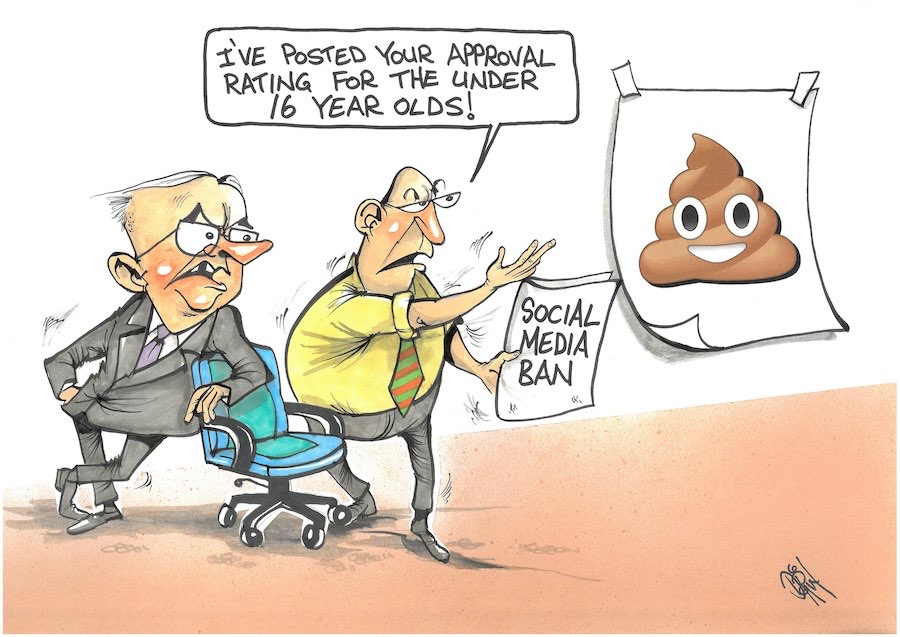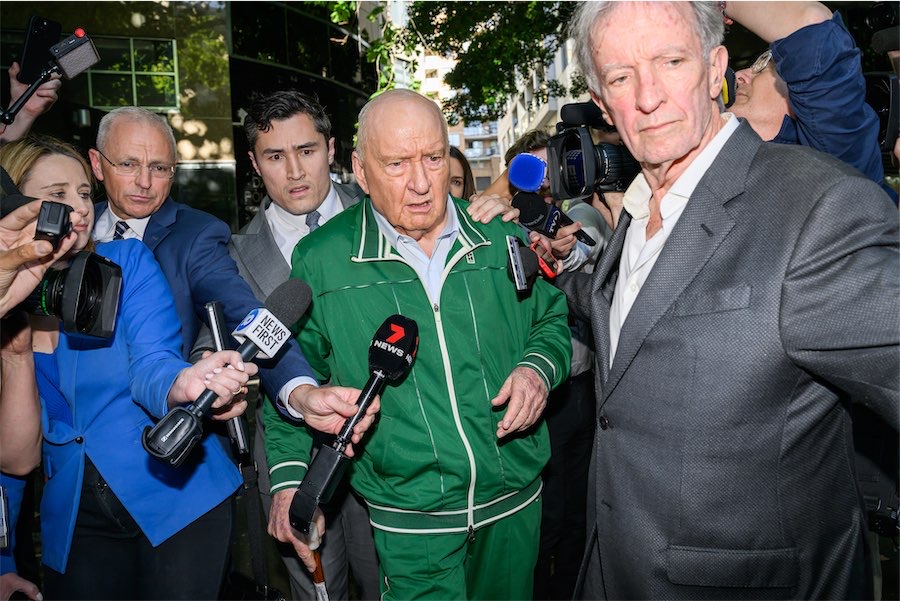
“Even in the very teeth of the ACT election campaign, it seems, reports of malfeasance by staff at the Alexander Maconochie Centre can be virtually ignored. There’s no votes, it seems, in the treatment of our most despised fellow citizens, which is supposed to be the measure of us as a civilised society,” says Canberra lawyer ANDREW FRASER.
Reports of malfeasance involving staff at the Alexander Maconochie Centre, the ACT’s supposedly human-rights-compliant prison, are now too numerous and too frequent to lack substantial veracity.

Yet, even in the very teeth of the ACT election campaign, it seems they can be virtually ignored.
There’s no votes, it seems, in the treatment of our most despised fellow citizens, which is supposed to be the measure of us as a civilised society.
As Professor Ross Fitzgerald so searingly spelled out in Pearls and Irritations and CityNews, the ACT ministry arrogantly doesn’t care and the mainstream subscription media – criminally – doesn’t either.
The judiciary, the ones who actually sign the bench sheets that send people to prison, does, I believe, generally care greatly, but there are gaps even in judicial understanding.
Only last week, a Canberra magistrate told a defendant that she would not be granting bail because keeping the defendant in jail was the only way to ensure he wouldn’t be able to get his hands on drugs.
That had long been the accepted verity. But the sad truth is now different.
The defendant spoke up immediately and directly: drugs – and alcohol – were just as easy, if not easier, to obtain in the AMC as on the outside, he told the Bench.
Even discounting for hatred of “the screws”, so many former and current inmates are speaking out and the picture is uniform: drugs are rife in the AMC.
They enter in one of three ways: dropped in by drone, passed back to the mainstream prison population from the Transitional Release Centre, or, most shockingly, there’s a certain element coming into the prison via staff.
The recent death in custody at the AMC was drug-related. There are only two explanations: the one pushed by authorities, that the deceased brought the material in himself and self-administered; or that he was easily able to obtain the material inside.
Which one is the greater hit to Corrections? The prison authority, it seems, would rather have an incompetent search upon induction on its own rap sheet, rather than a charge that drugs are freely available in the prison.
Another inquiry is not necessarily the answer.
Former ACT Inspector of Correctional Services Neil McAllister has bemoaned the way government has not taken up the many recommendations of two exhaustive investigations into conditions, procedures and issues at the AMC.
On his departure from the job last year, he detailed three key priorities: acute inmate boredom, poor educational opportunities and the fundamental need for an entirely separate prison for female detainees.
On her departure from the ACT Magistrates Court last year after a quarter-century on the Bench, Beth Campbell lamented the “distressing” state of the prison, wondering how it was “beyond our capacities” to educate inmates, rid the jail of drugs and stop sexual abuse.
Mr McAllister’s second review had made it “all too clear that the AMC is yet to live up to its lofty ambitions of rehabilitating rather than punishing prisoners,” Campbell, now the head of the ACT Law Reform and Sentencing Advisory Council, said at her ceremonial sitting.
Hopes are higher for change under the current prison leadership team than they have been in recent years.
Sources have spoken of a recent dark period with widespread abuse directed not only at detainees but at staff, who in turn of course took it out on the detainees, creating a self-perpetuating climate of fear and loathing.
The recent McBride revelations, prompting as they did many letters outlining similar horrors, might hopefully be a catalyst for some change.
Reviewers, as valuable and comprehensive as their work is, can’t fix things on their own.
They are, as former NZ Prime Minister David Lange once said of economists, “useful and welcome advisers”. “But I am a politician in government,” Lange continued. That is, he acts upon that useful and welcome advice.
Whoever forms the ACT government after October 19 needs to act quickly on the mountain of good advice about prison change. Like Lange, they don’t have to implement it all, chapter and verse, but, like Lange, they need the guts to actually engage with the substance of it.
Talking about it regularly in the Assembly and engaging regularly with people who work in the system – not leaving prisons and prisoners as the great unmentionables – would make a real difference.
It decreases the fear factor that so easily seems to overtake voters, and so their politicians, too.
Some public debate, and education, about prison and sentencing policy – especially about rehabilitation being the community’s best protection, and punishment being only one of the seven legislated purposes of sentencing – is overdue.
It would open a window of understanding – a window that the fourth estate in all its forms should be jamming wide at every opportunity.
The thoughtful work of Campbell’s council is worthy of a wider audience, too.
There are little signs of hope. I’m told that the prison’s reintegration unit is working particularly well, doing practical things like setting up bank accounts, and restoring Centrelink and National Disability Insurance Scheme payments before release. Positive engagement with the ACT Government Shopfront has been such that people can even have a Proof of Age Card in their hand before they exit prison.
The national prison newspaper, About Time, now in its fourth edition, is another real positive.
But it is the disinfectant of broad daylight – regular, widespread, mainstream scrutiny – that will see any poor culture start to crumble. Politicians need to visit the place, not for a photo opportunity while announcing some new hallway or ablutions block, but to talk to people there: to case workers, psychologists, medical staff, custodial officers, the valiant workers at Prisoners Aid, and even (gasp!) some detainees themselves.
And those MLAs should make themselves available whenever any of those people come forward to outline just what the problems are.
It might be that processes, or even personnel, need to be changed. Perhaps prosecutions are called for.
We just don’t know the full extent of the problem, and we won’t until people feel they’ll be listened to if they come forward and without the mainstream media getting on board.
But as I readied to file this piece, I receive an alert from The Canberra Times, headlined: “How safe is your suburb?” leading on to a vox pop “Your Say: Canberra voters share their thoughts on crime, policing and safety ahead of the territory election.”
Yes, the intro proclaimed, cost of living and healthcare are top of mind for many, but others are voting based on “increasing crime in their neighbourhood”.
What chance a prison exposé, when confected fear sells so well?
First published at Pearls and Irritations.
Who can be trusted?
In a world of spin and confusion, there’s never been a more important time to support independent journalism in Canberra.
If you trust our work online and want to enforce the power of independent voices, I invite you to make a small contribution.
Every dollar of support is invested back into our journalism to help keep citynews.com.au strong and free.
Thank you,
Ian Meikle, editor





Leave a Reply